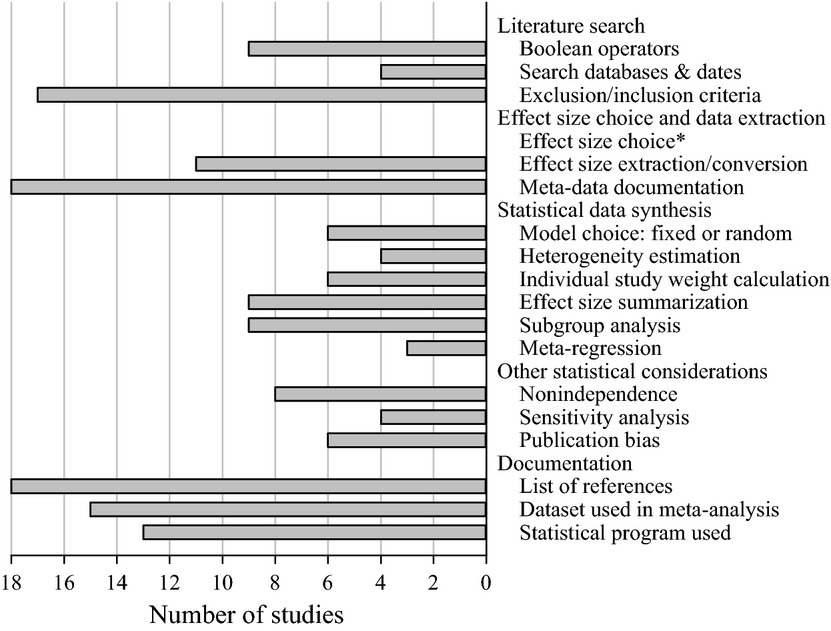
Citation
ArchMiller, A. A., E. F. Bauer, R. E. Koch, B. K. Wijayawardena, A. Anil, J. J. Kottwitz, A. S. Munsterman, and A. E. Wilson. 2015. Formalizing the definition of meta-analysis in Molecular Ecology. Molecular Ecology 24:4042-4051.
Abstract
Meta-analysis, the statistical synthesis of pertinent literature to develop evidence-based conclusions, is relatively new to the field of molecular ecology, with the first meta-analysis published in the journal Molecular Ecology in 2003 (Slate & Phua 2003). The goal of this article is to formalize the definition of meta-analysis for the authors, editors, reviewers and readers of Molecular Ecology by completing a review of the meta-analyses previously published in this journal. We also provide a brief overview of the many components required for meta-analysis with a more specific discussion of the issues related to the field of molecular ecology, including the use and statistical considerations of Wright’s FST and its related analogues as effect sizes in meta-analysis. We performed a literature review to identify articles published as ‘meta-analyses’ in Molecular Ecology, which were then evaluated by at least two reviewers. We specifically targeted Molecular Ecology publications because as a flagship journal in this field, meta-analyses published in Molecular Ecology have the potential to set the standard for meta-analyses in other journals. We found that while many of these reviewed articles were strong meta-analyses, others failed to follow standard meta-analytical techniques. One of these unsatisfactory meta-analyses was in fact a secondary analysis. Other studies attempted meta-analyses but lacked the fundamental statistics that are considered necessary for an effective and powerful meta-analysis. By drawing attention to the inconsistency of studies labelled as meta-analyses, we emphasize the importance of understanding the components of traditional meta-analyses to fully embrace the strengths of quantitative data synthesis in the field of molecular ecology.